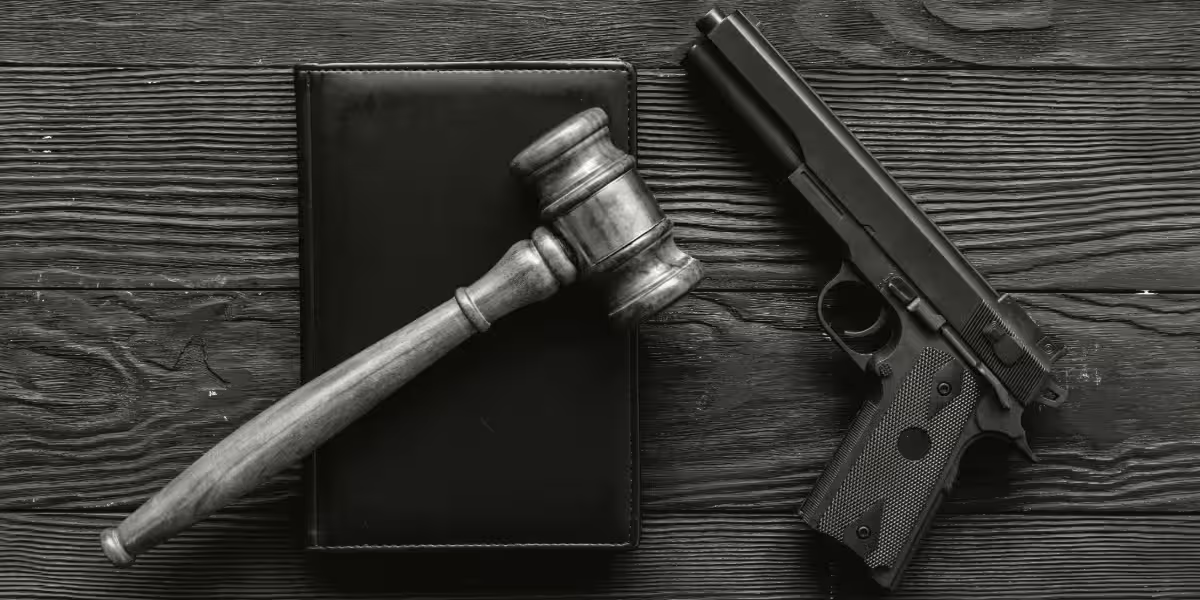
Understanding Blair’s Law: Kansas City’s New Measure Against Celebratory Gunfire
In recent years, Kansas City has witnessed the alarming consequences of celebratory gunfire, a dangerous practice that poses significant risks to public safety. The Kansas City Police Department’s ShotSpotter technology recorded 193 rounds of gunfire between 6 pm on July 3rd and 6 am on July 5th, 2023, highlighting the urgent need for stricter regulations. In response, the Missouri legislature has passed a comprehensive public safety bill known as “Blair’s Law,” making celebratory gunfire illegal.
As skilled Kansas City personal injury and wrongful death trial lawyers, Kendall Law Group is here to keep you informed about current laws affecting public safety and the legal remedies available to those affected by such negligent actions.
What is Blair’s Law?
Blair’s Law is named after Blair Shanahan, an 11-year-old girl who tragically lost her life in 2011 due to a stray bullet from celebratory gunfire. Blair was dancing around smoke from sparklers in front of her family’s home along Riss Lake when the incident occurred. This heartbreaking event catalyzed the introduction of Blair’s Law, aimed at preventing similar tragedies in the future.
This legislation introduces state-level penalties for celebratory gunfire, which were previously only punishable under city ordinances. The bill passed the Missouri House with a vote of 130-5 after clearing the Senate. Governor Mike Pearson has indicated his intention to sign the bill, and once signed, it will take effect on August 28, 2024.
Under Blair’s Law, the first offense will be classified as a Class A misdemeanor, with subsequent offenses escalating to Class E and Class D felonies. The law aims to deter celebratory gunfire by increasing public awareness of the dangers and imposing stricter penalties. It relies on law enforcement and prosecutors to enforce these new regulations effectively.
The Legal Framework of Blair’s Law
Blair’s Law will make it a crime to “recklessly” discharge a firearm “within or into any city limits.” This marks a significant shift in Missouri’s legal landscape, where it was not previously a crime to fire a gun recklessly. The charge of “unlawful use of a weapon” only applied to firing a gun into specific structures such as homes, cars, boats, or airplanes, and included discharging a firearm within 100 yards or less from an occupied school, church, or courthouse. Additionally, it was illegal to discharge a firearm “along or across a public highway.”
With the implementation of Blair’s Law, Missouri is taking a proactive stance against reckless firearm discharge, particularly during celebratory events. This new law is expected to enhance public safety and reduce the risk of injuries and fatalities resulting from stray bullets.
Celebratory Gunfire: Who is Liable?
Celebratory gunfire poses severe risks, and those responsible for such reckless actions can be held liable for the injuries and deaths they cause. Under Blair’s Law, individuals who discharge firearms recklessly within city limits can face criminal charges, leading to significant legal consequences.
In addition to criminal penalties, victims of celebratory gunfire or their families may seek legal remedies through civil litigation. Kansas and Missouri laws provide avenues for pursuing compensation for medical expenses, pain and suffering, lost wages, and other damages resulting from such negligent behavior.
Legal Remedies for Celebratory Gunfire Injuries and Deaths in Kansas and Missouri
Victims of celebratory gunfire in Kansas and Missouri have legal recourse to hold negligent individuals accountable. Civil lawsuits can be filed to seek compensation for the harm caused by reckless firearm discharge. Here are some key legal considerations:
- Negligence: To succeed in a negligence claim, the victim must prove that the defendant owed a duty of care, breached that duty by recklessly discharging a firearm, and caused harm as a result. Blair’s Law strengthens the case for negligence by clearly defining the reckless discharge of firearms as a criminal act.
- Wrongful Death: In tragic cases where celebratory gunfire results in death, the victim’s family can file a wrongful death lawsuit. This type of lawsuit seeks compensation for funeral expenses, loss of companionship, and other damages suffered by the family.
- Personal Injury: Victims who survive gunfire incidents can pursue personal injury claims to cover medical bills, rehabilitation costs, and other related expenses. These claims can also seek damages for emotional distress and loss of quality of life.
- Punitive Damages: In some cases, courts may award punitive damages to punish particularly egregious behavior and deter similar conduct in the future. The reckless nature of celebratory gunfire may warrant such punitive measures.
How Kendall Law Group Can Help
At Kendall Law Group, we understand the devastating impact of celebratory gunfire on victims and their families. Our experienced team of personal injury and wrongful death trial lawyers is committed to helping you navigate the legal process and obtain the compensation you deserve.
We offer compassionate and dedicated legal representation, focusing on your needs and advocating for your rights. If you or a loved one has been affected by celebratory gunfire, contact us today for a free consultation. We will review your case, explain your legal options, and work tirelessly to achieve the best possible outcome.
Blair’s Law represents a significant step forward in enhancing public safety in Missouri by making celebratory gunfire illegal. This new legislation underscores the importance of responsible firearm use and aims to prevent tragic incidents like the one that took Blair Shanahan’s life. By imposing stricter penalties and raising public awareness, Blair’s Law seeks to deter reckless behavior and protect the community.
If you have been affected by celebratory gunfire, know that legal remedies are available to hold negligent parties accountable. The Kendall Law Group is here to support you through this challenging time, offering skilled legal guidance and dedicated advocacy. Contact us for a free consultation at (816) 531-3100.






